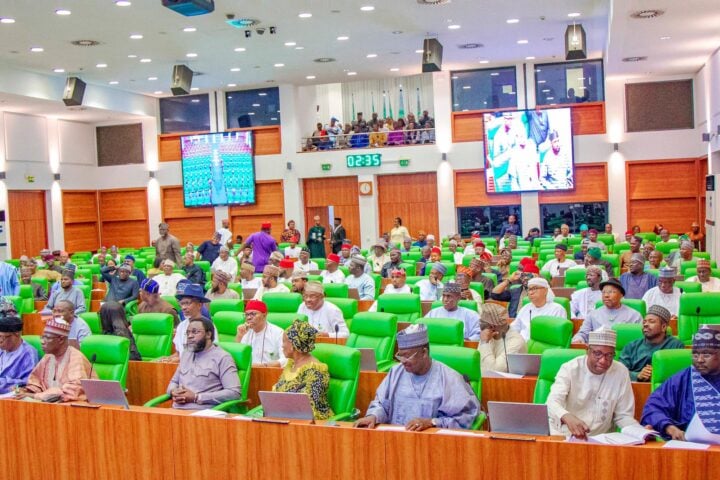A bill seeking to establish a national tax crimes and oversight commission has passed the second reading at the house of representatives.
Sponsored by Benjamin Kalu, deputy speaker of the house, and eight other lawmakers, the bill proposes to establish the commission to “complement” the Federal Inland Revenue Service (FIRS) in tackling revenue leakages as a result of non-payment and underpayment of taxes.
Section 6(a) of the bill stipulates that the “commission will complement the efforts of the FIRS in ensuring compliance with payment of tax, develop and implement a national policy for tracking down tax defaulters, develop tax compliance strategies, and provide for an efficient and effective mechanism in administering the Nigerian tax system”.
Other functions of the proposed commission include protecting taxpayers’ rights, educating the citizenry on tax matters, collaborating with relevant stakeholders to ensure payment of taxes and proper remittance to the federation account, providing a transparent platform on all matters relating to tax, providing sustainable finance and revenue for the government.
Advertisement
Leading the debate on the bill, Felix Nweke, a co-sponsor, said the amount of revenue available to any government determines the extent to which such an administration may be able to provide public goods and services.
“It is a pointer to how far a nation can ensure her growth and development. Taxation is considered the most important means of generating public revenue,” Nweke said.
“It is worthy of note that nations that strive to develop aim at putting in place a fair, just, efficient and simplified tax administration system which builds confidence amongst the citizens and as well motivate and encourage citizens to pay their taxes.
Advertisement
“While it is one thing to fix the amount of taxes to be paid, it is another for tax collection authorities and assessors to determine the right amount of taxes to be paid by the provisions of extant tax laws.
“Leakages also occur in the form of tax evasion, especially such that is encouraged and condoned by the tax collector and more especially among multinational corporations operating within the country.”
The lawmaker said leakages also occur where there are non-remittances of collected taxes.
He noted that the government does not get the total amount of taxes collected as a result of revenue diversion by fraudulent staff of tax authorities.
Advertisement
The legislator said the commission will effectively combat and prevent international tax evasion and other transnational organised crimes and abuses of the nation’s public finance system.
He argued that there is a need to establish the commission to investigate, audit, prevent and combat tax-related crimes.
“This will contribute to our national security through prevention of tax-related crimes, prevention of illicit financial flow derived from tax evasion, international tax schemes, cybercrime,” he said.
Nweke said the commission will not function as a law court, or duplicate the functions of the tax appeal tribunals or be saddled with any form of quasi-judicial functions.
Advertisement
He said the commission will primarily concentrate on overseeing the tax administration system, ensuring that tax authorities fulfil their duties within the bounds of the law, protecting, promoting, and guaranteeing taxpayers’ rights.
“The commission will, when necessary, ensure the prosecution of corrupt and fraudulent tax officials and guarantee the full remittance of all public revenues,” he said.
Advertisement
The bill was unanimously voted for when it was out to a voice vote by Benjamin Kalu, the presiding officer.
The development comes amid a move by the federal government to fully implement the Stephen Oronsaye report.
Advertisement
In 2011, former President Goodluck Jonathan constituted the Oronsaye-led panel to identify inadequacies in the country’s civil service.
The committee, in the 800-page report submitted to Jonathan in 2012, recommended the scrapping and merging of 102 government agencies and parastatals with related or similar functions.
Advertisement
Add a comment






